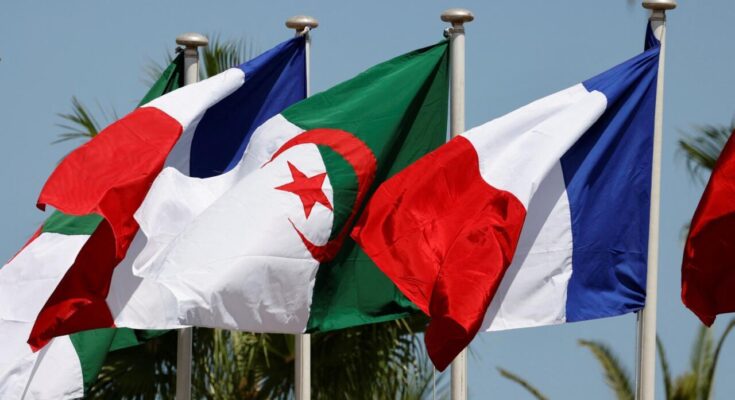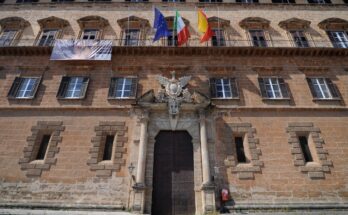Rejoicing at the pardon that Algeria granted Boualem Sansal, the President of the French Republic Emmanuel Macron and his Prime Minister Sébastien Lecornu, on Wednesday, November 12, spoke of the acquittal that was “the fruit of a method made with respect and calm.” A way to emphasize that the current government has managed to distance itself from the doctrine of former Interior Minister Bruno Retailleau, which contained invective and threats against Algeria.
Algeria has received a request from Germany to pardon and transfer the 76-year-old French-Algerian writer, who was imprisoned for a year in Algeria, so that he can be treated, according to a press release from the Algerian presidency.
Algerian President Abdelmadjid Tebboune “responded favorably” to a request from his German counterpart Frank-Walter Steinmeier, “regarding granting a pardon in favor of Boualem Sansal”. This request “is of interest for its humanitarian nature and reasons,” the press release explained.
“I note President Tebboune’s humanitarian attitude and express my gratitude for this. I am clearly still willing to discuss with him all matters of interest to our two countries,” said Emmanuel Macron on the sidelines of his visit to Toulouse.
“We work transparently with our German friends as a trusted third party and I sincerely thank President Steinmeier for being available,” he added, as if to suggest that Paris and Berlin were acting together.
“It is important for third countries to intervene so as not to embarrass Algeria’s power. We have been hearing about this solution for some time so that everyone can be a winner,” emphasized Les Républicains (LR) Senator Cédric Perrin, president of the Senate Foreign Affairs Committee, as quoted by Public-Sénat.
“Deadlock doesn’t work”
While relations between France and Algeria have worsened in recent months, the appointment of Sébastien Lecornu to Matignon and the arrival of Laurent Nunez at Place Beauvau in October to replace Bruno Retailleau have changed the situation.
In both the Barnier government and the Bayrou government, the LR party boss never stopped demanding the release of Boualem Sansal through offensive public declarations. Bruno Retailleau later said, from December 2024, “supports a firm policy” with Algeria. And he still stated, in July 2025, that “good-feeling diplomacy (has) failed” and that we need to “assume the balance of power chosen by the Algerian government.”
Laurent Nunez adopted a very different style, allowing discussions to continue with the greatest tact between the two countries and, little by little, the Boualem Sansal file could be continued.
See alsoBoualem Sansal pardoned: France-Algeria, towards de-escalation?
“This dispute will not work” in relations with other “sovereign states” such as Algeria, the Élysée said late Wednesday. “It is doubtful, both at the state level and in life, that we can get the best results by being angry with the people we are close to,” an adviser to Emmanuel Macron told the press when asked by a journalist whether the departure of Bruno Retailleau’s government had facilitated this release.
As a sign of his desire to improve relations between the two countries, Emmanuel Macron sent a letter to Abdelmadjid Tebboune on the occasion of Algerian Revolution Day, on 1uh November, in which he emphasized that “honest and respectful bilateral dialogue, on an equal footing and responding to the interests of both peoples, is the only way to continue the most important cooperation, especially in the areas of security, consular and migration.”
“Rest in shape”
And although he himself took part in deteriorating relations with Algeria by asserting in 2021 that Algeria was built on a “memorial rent” maintained since independence by a “military-political system”, Emmanuel Macron also made the choice in this series to use the memory of the Algerian war. He then asked the French ambassador to Algeria Stéphane Romatet, who had been recalled to France since April and had still not returned to his post, to take part, on October 16 in Paris, in a ceremony honoring the victims of October 17, 1961, according to Le Figaro. That day, Maurice Papon’s police violently suppressed an FLN demonstration in the French capital, throwing several dozen Algerians into the Seine River.
The 180° turnaround with the Retailleau method was claimed by Laurent Nunez, who spoke on 19 October at France Inter about the “breakthrough in performance”. “Those who make the French believe that arm wrestling and brutal methods are the only solution, the only way out, are wrong. It doesn’t work, in any field,” he said later in an interview published on 1uh November in Le Parisien, days after the vote in the National Assembly on a National Assembly resolution aimed at “denying” the 1968 Franco-Algerian agreement.
See alsoFrance – Algeria: anatomy of a tear with Benjamin Stora and Thomas Snégaroff
The Minister of Interior particularly regretted that “the line was today completely cut off with Algeria”, referring to the complete cessation of migration and security cooperation between the two countries.
Laurent Nunez, however, revealed in the same interview that he was invited to Algeria by his Algerian counterpart, a possible sign of easing relations between Paris and Algiers. The release of Boualem Sansal who arrived in Germany on Wednesday evening now strengthens this hypothesis.
Emmanuel Macron, who thanked his Algerian counterpart for this “humanitarian gesture”, said he was “willing to discuss with him on all topics”. Meanwhile, Bruno Retailleau was satisfied with a short message on X to express his “tremendous relief”.



